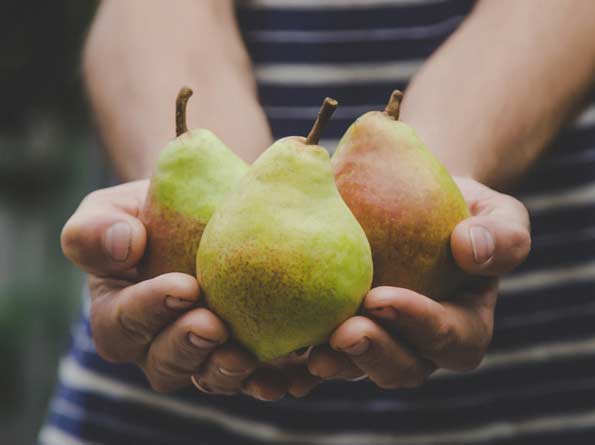Alex Masih
“Wow, would you look at that.” We had just finished dinner, and we were all at the table talking. It was just my parents, my brother, me, and my grandparents in their big house. Appacha (my grandfather, pronounced uh-puh-CHUH), who had whipped up an amazing South Indian feast that night, had just spotted something in the backyard. He was staring out the open window that looked onto the patio. It was a deer. Just an ordinary deer. Nonetheless, Appacha was hypnotized by the creature. Any time he saw animals, it would take him back to his childhood in rural India. There were animals literally everywhere you looked. Cows simply roamed the streets.
Bullocks lazily pulled people and cargo. But monkeys were especially interesting because they swiped your food sometimes.
Speaking of swiping food, that was exactly what that deer was doing! Her neck craned to reach some fruit growing from one of Appacha’s many trees. “Hey! Stop that!” Appacha yelled from the open window. The deer’s ears perked up and he ran off. “I didn’t know that there was something growing there,” Appacha said scratching his bald head. I was astonished that he said this.
“Why aren’t there usually fruits on the trees?” I asked. Appacha explained that all summer, every time the fruits were ready for picking, the animals would come and eat them before he could harvest them. Appacha said that it was only by God’s miracles that there was fruit left over. “What’s even growing there?” I inquired.
Appacha answered by rising from his chair and saying, “Well, let’s find out!” With that, he slid into his chupples (which are sandals) and walked right out the door. He didn’t even have to ask me to come along, I had already stomped on my shoes and bolted right out the door behind him.
We walked closer to the tree. I noticed in the evening light that every other tree in the yard had been picked clean by wildlife. Appacha said that the leftover fruits were probably hidden from view or were late bloomers. We marched right up to the tree and realized that the tree was bearing pears.
Wonderful, delicious, pears. “Wow, wow, wow.” Appacha reached up and picked a dark green one from a branch. It came off with a satisfying SNAP. “Here, Alex.” Appacha handed me the fruit. “Taste.” I joyously followed his instructions and took a chunk out of the pear. It sounded like boots walking through snow. The taste was amazing. Not too sweet, not too tart…but even more than that, it tasted like hard work. Like victory. Like it was well deserved. Appacha had to plant the seedling and wait several years before the pears could be produced. He had to wait until the pears ripened. He had to go out and pick the pears, only to find out that the deer and the birds had already raided the trees. But Appacha still persisted. He waited another year for the fruits to grow, and he tried again and again until he had his pears.
That’s the thing about Appacha. He’s willing to work hard and trust in God to reach his ultimate goal, even if it seems like he isn’t going anywhere. That’s how he was able to move his new family to America with a Bible and a few dollars in hand. That’s how he was able to raise two daughters and put them all the way through school. That’s how he was able to pay off four houses.
Believing in God isn’t always easy. There were definitely some low moments where God didn’t seem to be present. Hard work is never going to be easy either, and sacrifices have to be made. My mom and my aunt never had much help on their school projects because their parents were sleeping during the day and working from 7: 00 PM to 7: 00 AM at the hospital.
But, it was all worth it. Because of Appacha’s persevering character and relentless trust in God, I believe he was able to achieve his ultimate goal: to succeed and provide his family with a great life in America.
“Work willingly at whatever you do, as though you were working for the Lord rather than for people. Remember that the Lord will give you an inheritance as your reward, and that the Master you are serving is Christ.”—Colossians 3: 23-24



1 thought on “Appacha’s Pears”
Thank you for the lessons in this story.